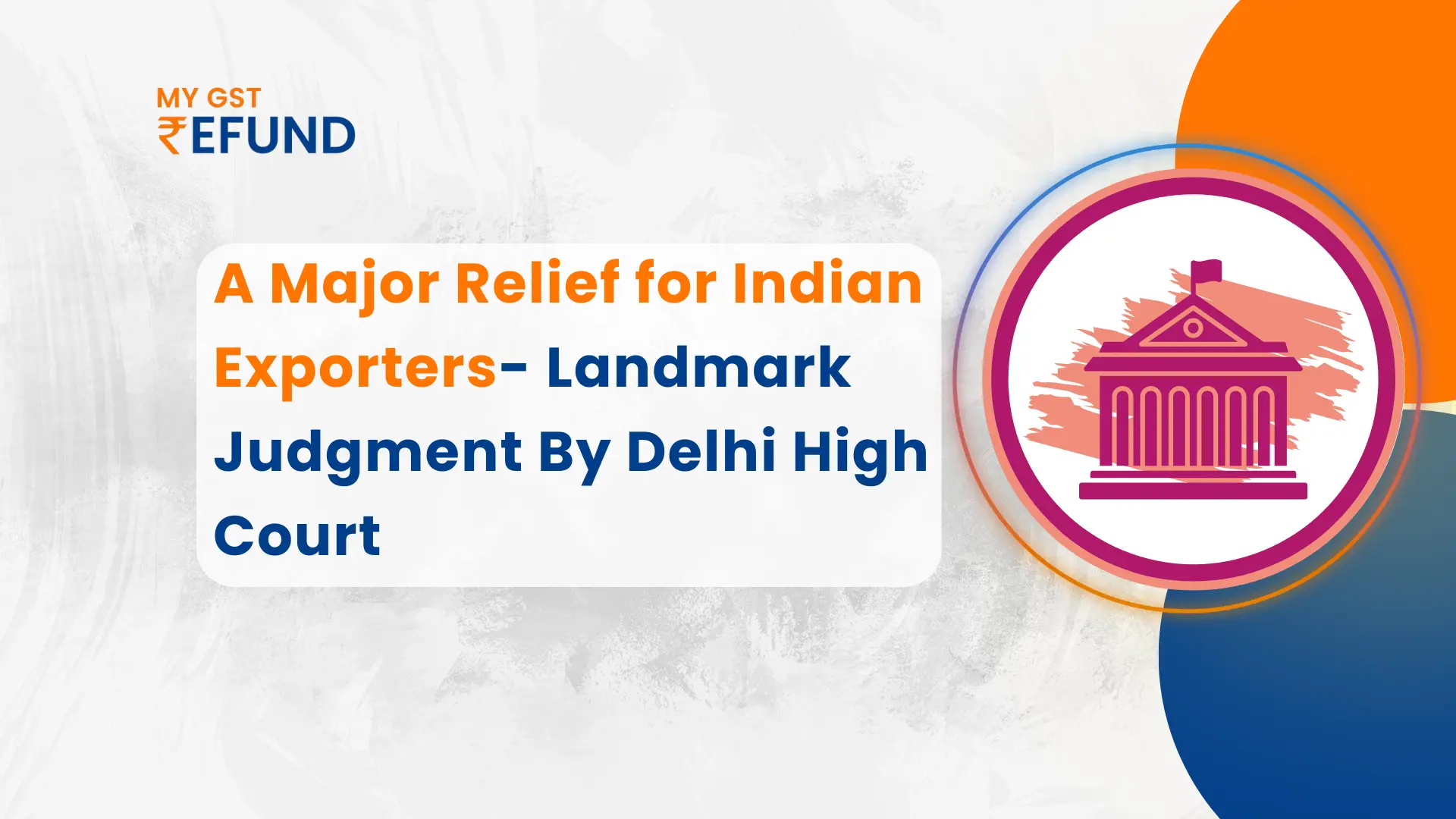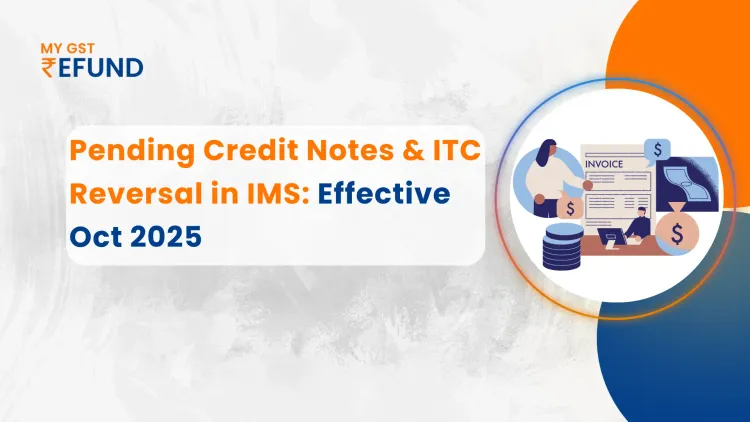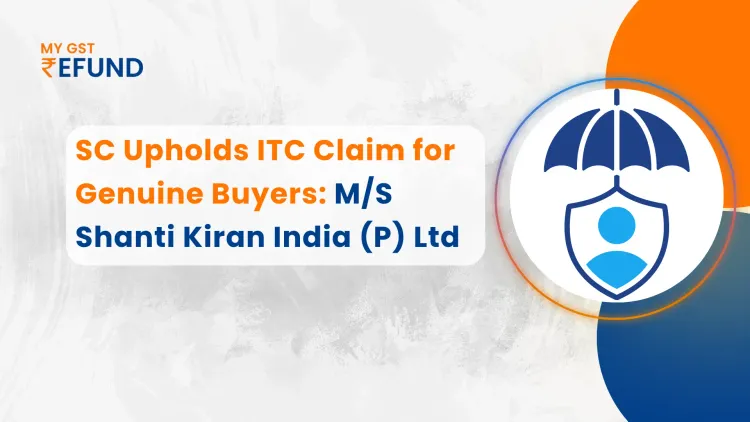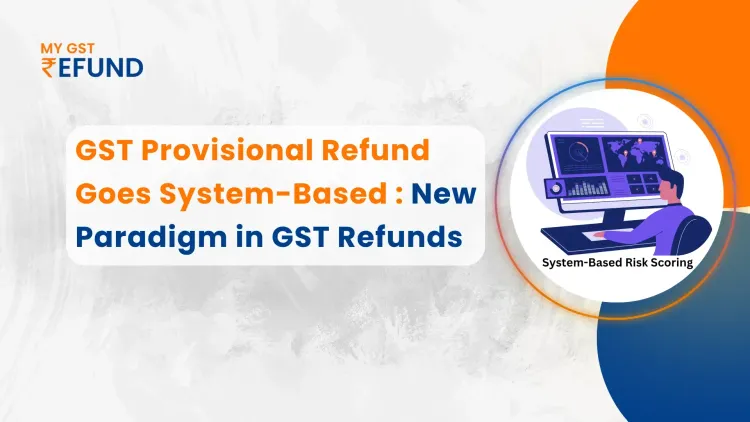Delhi High Court Quashes Exporter's GST Refund Rejection
Published on: Tue Sep 23 2025
Exporter's Refund Rejection Quashed By Delhi High Court: Date Of LUT Timing Held Irrelevant
September 3, 2025| Alkesh Tacker HUF vs. Union of India: A Landmark GST Refund Judgment for Exporters
The Delhi High Court has brought considerable relief to the export community in India. In Alkesh Tacker HUF v. Union of India, the high court quashed the rejection of a ₹10.05 lakh refund of unused Input Tax Credit (ITC) against zero-rated exports by the GST department.
The crux of the issue was the timing of the Letter of Undertaking (LUT). The refund was declined on the frivolous, and, by the court's ruling, "specious" reason of the LUT having been filed after the commencement of the period of refund, but before actual exports. The court ruling again serves to reaffirm that refunds on zero-rated supplies are an excellent export incentive and must not be denied on hyper-technical or factually unsubstantiated grounds.
Case Background: Alkesh Tacker HUF vs. The GST Department
Alkesh Tacker HUF, cordless set, and other products exporter. Claimed a refund of ₹10,05,341 of unutilized Input Tax Credit (ITC). The claim was for September to December 2021 zero-rated supplies (exports). The CGST Department issued a Show Cause Notice (SCN) and, after obtaining all documents demanded by it, rejected the claim.
The case was dismissed since the LUT had been dated August 26, 2021, and the refund period had been July 2021. In a mistaken belief, the department believed that the LUT had been submitted after the making of exports and, therefore, the claim would not be admissible. Aggrieved by such one-sided guidance, the petitioner approached the High Court under Articles 226 and 227 of the Constitution of India.
The Petitioner's Claim
Who: Alkesh Tacker HUF, cordless set, and other exporters. Claimed a refund of ₹10,05,341 of unused Input Tax Credit (ITC).Claim for zero-rated supply (exports) during September to December 2021.
The Department's Show Cause Notice (SCN) and Rejection
GST department sent an SCN requesting different documents (undertakings, declarations, CA certificates, etc.), all of which were produced by the petitioner.
The Single Ground for Rejection: The refund was rejected on the ground that the LUT had been dated August 26, 2021, whereas the period of refund had been stated as July-December 2021. The department wrongly presumed the LUT had been filed "post-exports" or after the concerned period had commenced.
The Central Legal Question: Substance vs. Procedural Timing
Framing the Issue: Whether a refund of GST paid on zero-rated exports can be withheld because the LUT had been submitted after the beginning of a tax period, albeit one submitted much before the raising of the first export invoice or shipping bill.
Delhi High Court's Final Ruling and Reason
This sub-section examines the court's principal holdings.
Department's Reasoning was "Specious and Untenable"
The court held the refusal factually without basis.
A mere date-to-date comparison rendered the petitioner's case:
LUT Filing Date: 26 August 2021
Date of First Export Through Shipping Bill: 13 September 2021
The LUT was rightfully filed before the exports, fulfilling the legislative requirement.
The Spirit of the Law: Refunds are an Incentive, Not a Hurdle
The Court stressed that refunds of zero-rated supplies are intended to be an incentive for stimulating exports.
Withholding such refunds on ultra-technical or misread grounds goes against the scheme and intention of the CGST regime.
The Final Directive: Refund with Interest
The High Court cancelled the rejection order dated November 14, 2024.
It ordered the department to refund the entire amount with statutory interest within two weeks.
The fine was imposed: In case of not receiving the refund by September 3, 2025, an increased rate of interest of 12% per annum would be charged.
Takeaways for Exporters and GST Practitioners
The judgment is a game-changer for the export fraternity. It offers a robust legal defence in the event of any such arbitrary rejections.
Substance Over Form: This is the very typical case of the judiciary placing greater stress on actual compliance with the law rather than strict illogical compliance with timelines.
Strong Legal Precedent: The ruling can be cited to base one's argument on in reversing the rejection of refunds on such points. It is a strong tool to counter frivolous SCNs.
Consistency with earlier Decisions: This ruling is also in line with earlier pro-assessee rulings from other High Courts, such as Amit Cotton Industries v. Principal Commissioner of Customs and Jal Engineering v. Union of India. This is in line with a long-standing judicial tendency that protects exporters' rights.
The Delhi High Court judgment is a relief. It is an important check on the over-activism of the department that shields the GST refund mechanism from being diverted to uses that derail, and not enhance, the national interest of export promotion and a business environment.
Frequently Asked Questions on the Judgment
Q1: What is a Letter of Undertaking (LUT)?
A Letter of Undertaking or LUT is a document filed by exporters to export goods or services on credit or without pre-payment of Integrated GST (IGST). They undertake that all the export-related obligations under the GST law will be complied with.
Q2: What was the key issue in the Alkesh Tacker HUF case?
The claim for refund had been rejected by the GST department as the LUT was filed after the commencement of the refund period, although it was filed before the commencement of exports. The High Court ruled that such a refusal was unlawful.
Q3: Is my GST refund going to get rejected if I file the LUT after receiving my first export invoice?
The law mandates that the LUT be brought into force with effect from the date of export. Although this exercise of choice saves one from rejection on technical grounds of the "tax period," it is always prudent to have an effective LUT in one's hand, ready before releasing any export invoices to avoid triggering disputes.
Q4: What would this ruling do for my business?
If your business too has experienced the same rejection of the refund on a mistaken application of time limits in procedures, you can use this precedent case as a judicial precedent for filing ahead of your case for the refund.
Q5: How is this decision going to impact my business?
If your business has been the target of a refund denial wherein a time-of-record deadline was read incorrectly by the department, you can use this case as a precedent to support your argument. It is in support of your call for your rightful refund.
Q6: Would my refund remain rejected if I submit the LUT after my initial export?
Law expects the LUT to be effective at the time of export. Although this choice guards against rejections on account of the "tax period," the best practice is to maintain a valid LUT at all times before entering any export invoices to steer clear of disputes.
Related Posts




